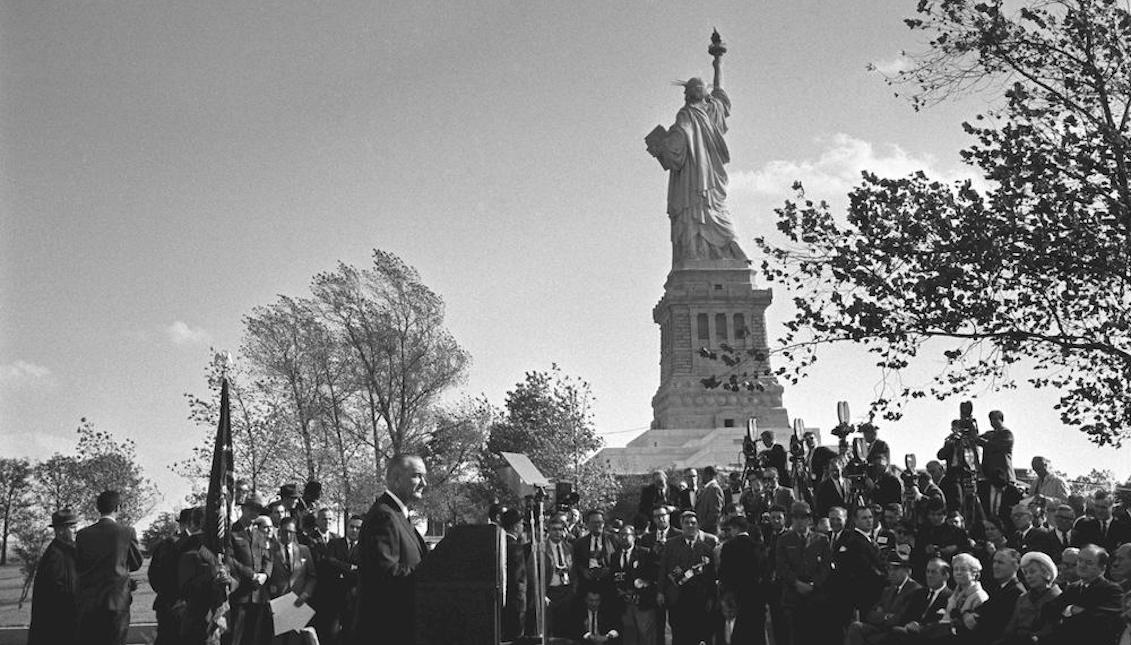
The urgency of decolonizing the university
MORE IN THIS SECTION
Just a few months ago, my dad shared with me for the first time his experiences with racism during my childhood in suburban San Diego. He immigrated to Minnesota from Bengaluru in 1967, in the immediate wake of the Immigration and Naturalization Act of 1965, a piece of Civil Rights legislation that ended a racist immigration quota system favoring Western European immigrants. (Only because of an Asian American Studies course I took as a doctoral student, I’ve relatively recently been able to understand my dad’s immigration story in terms of that history.)
Growing up in relative affluence, I had the advantage of my being sheltered from the oppressive and systemic violence that lays siege to minoritized communities, but also the disadvantage of an education divorced from understanding the historical and social processes that produce those systems of violence, coupled with no sense of the historic struggles waged by people against these systems.
To be sure, the education I received fashioned me into the sort of person designed to thrive in today’s university. But the cost of this fashioning was an inability to understand my dad’s anger when our local Denny’s restaurant delayed seating us, in a mid-1990s context in which Denny’s was settling lawsuits with black patrons. I didn’t have access to the term “white flight” to describe the fact that the two white families who lived on either side of us moved out shortly after we moved in. But, without any formal training in Critical Race Theory, my dad knew exactly what was happening.
When my dad recently shared these experiences with me, I recalled the shame I felt then towards him, at his public anger in Denny’s. Worse: even now I couldn’t quite stop the reflexive urge to dismiss my dad’s observations about our white neighbors as hypersensitivity. This is despite my work in Black Studies, my current commitment to anti-racist pedagogy and activism, and my deep investments in foregrounding Black people’s and other minoritized groups’ ways of living, knowing, and struggling.
To put a finer point on it: most of my educational training—to avoid indicting whiteness—has been highly effective.
The university for which I was designed is categorically not designed for those whose lives have been at the receiving end of colonial, white supremacist, gendered, and homophobic violence. Instead, the modern university emerged precisely as a way to shore up the normative power that produces that violence.
When black and brown students brought their lived experiences and their ways of being into the modern university, they mobilized against its Eurocentrism, its reproduction of racial capital, its patriarchy. In the 1960s and 1970s, they demanded that their histories be taught widely, not solely so that they could see themselves in these histories and stories, but also as a way to clear the grounds for creating robust interdisciplinary study, research, and teaching. They demanded Black Studies, Ethnic Studies, Asian American Studies, Indigenous Studies, Chicano/a and Latino/a Studies, and they situated these demands in global anticolonial and antiracist struggle.
We are seeing today a resurgence of these demands, by a new set of students struggling against a familiar power structure with evolved tactics. To cite just two recent examples: the student-led mobilizations at Harvard in the wake of the denial of tenure to Dr. Lorgia García Peña, and the Rhodes Must Fall movement that began at the University of Cape Town in 2015 and spread to other South African universities.
Today, the corporate university in the U.S. touts its commitment to Diversity, Inclusion, and Equity while entire departments have no Black or Indigenous faculty and entire universities offer no curricular concentrations, much less majors, in Black Studies, Ethnic Studies, Indigenous Studies, and aligned interdisciplinary fields.
University responses are typical and tepid: “This takes time,” “Wait,” “These things are complicated.” The same style of responses faced anticolonial independence struggles of the 1950s and 1960s.
Pulling into the present those earlier struggles, students today make a clear demand: decolonize the university. Far more than the “excellent” education I received, my younger self needed this decolonized education, one that could have taught me to perceive the racism my dad experienced, understand it as part of broader structures of oppression, and then join young students of color mobilized against it.
*Raj Chetty is an Assistant Professor, Black Literature & Culture in the San Diego State University, and Co-editor (with Amaury Rodriguez) of "Dominican Black Studies," The Black Scholar (2015).






LEAVE A COMMENT:
Join the discussion! Leave a comment.